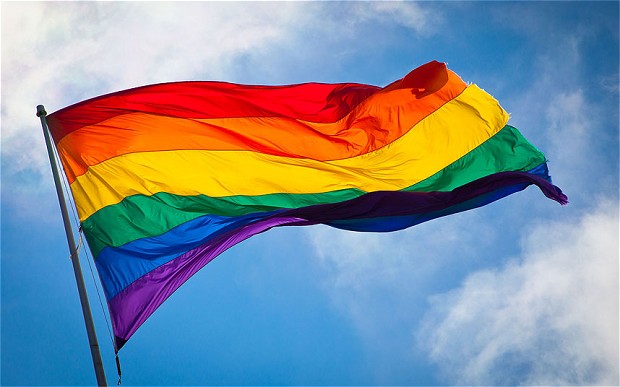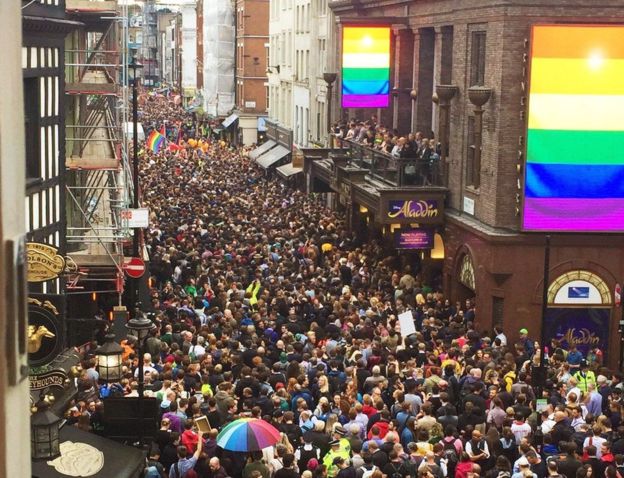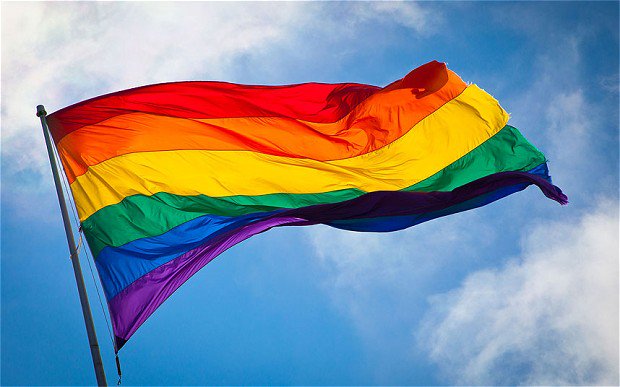From shootings to suicide: Why homophobia remains as deadly as ever

By Anthony Lorenzo
We’ve always known homophobia is deadly. If it isn’t gay men being thrown from heights to meet their end among baying crowds in Syria, it’s gay men dying of AIDS because governments wouldn’t fund medicine for ‘gay diseases’. If it isn’t young men being tied to posts and beaten to death, it’s governments executing ‘sodomites’. If it isn’t young gays being chased off cliffs by their own families, it’s gays, lesbians and trans people committing suicide, unable to take the hate any more. Death dealt by the hands of citizens, death dealt by our supposed families, death dealt by the state, death dealt by our own hands.
The danger of homophobia bubbles under surfaces. It’s never far from our community’s mind; we must contemplate danger whenever we leave the house. On occasion, that danger is thrown into sharp relief for the masses. Such was the murderous fury of Omar Mateen on Saturday, the whole world was forced to contemplate what occupies the minds of LGBT people around the world.
The mind, bombarded with appalling imagery, horrific testimony, imagined sounds of horror, cannot process it all effectively. A state of shell-shock renders one mute. Strange, seemingly tangential details take centre stage. Reading about the Orlando massacre, I found what struck me most was the disconcerting feeling I knew the victims. Eddie Justice, his name exhibiting the cruelest irony, wasn’t a mere victim: He was someone we knew. Stanley Almodovar, his namesake a gay director of LGBT-friendly films, was someone we spoke to every weekend. Anthony, Jean, Amanda, Franky, Luis, Enrique, Oscar, Kimberley: Their familiar names, eerily familiar faces, the tragedy of their stories compounded, until it confounds: They aren’t mere victims. We don’t merely know them; they are our siblings.

The LGBT community is known for our creativity. Perhaps it’s the tendency towards introversion as teens, as we fear expression of our true selves in front of a society that seeks to quell our natural urges-we reach adulthood with ideas cultivated over years, ready to burst. Or perhaps it’s just that our urge to create stems from something more Darwinian: A need to stamp our mark on an earth that doesn’t want us to procreate.
Whatever it is, that creativity remains under attack from dark forces. The likes of Omar Mateen do not create; they destroy. Destruction is easier than creation. What takes years to cultivate can be obliterated in moments. That is why an irrepressible spirit is needed, lest our lives be forever weighed down in a quagmire of hate. It seems such dark forces are the apocalyptic last word, until we remember our community is one organised around love, which is truly unquenchable.
The move towards LGBT equality is slow, but sure. Here, Section 28 was repealed, LGBT people can adopt, marry, and join the armed forces. No one can deny things have improved. But legislation is just that: clinical paperwork, jumbles of words no one really reads. The translation of legislative acts into a societal attitudinal shift towards acceptance is the long game. It takes generations before our sexuality is seen as a normal part of the fabric of human existence. Same-sex relations were common and accepted in much of the ancient world. That people thousands of years ago had a more prosaic attitude towards gay love than we do is a sad indictment on how religion and heteronormative masculinity has been allowed to rampage through the ages, destroying our creative impulses.
Stories are emerging which indicate Omar Mateen was himself gay, but repressed. It appears he frequented the nightclub he chose to turn into an abattoir. His father, Seddique, in his cursory attempts to explain the massacre, said it was “up to God” to punish homosexuality. Unable to see there is nothing to punish, Seddique’s derogatory word to describe the gay people whose lives were taken by his son – “hamjensbazi” – may have been ringing in Mateen’s head, loud as the sound of his automatic rifle.
We can’t know what went through Mateen’s mind as he took down his imagined adversaries, but if it is true he was closeted, it’s obvious he was projecting onto others his internalised homophobia. The phallic gun was symbolic of his impotent rage, a rage made good as he ejaculated bullets, which unlike sperm, take life rather than create it. This inversion of a biological imperative is galling.

Changing troglodytic attitudes towards the LGBT community takes time, but must America allow people with such views access to war weapons no one can fight off? Gun laws in America are a throwback to an age that couldn’t have predicted the sheer growth in population size, the myriad ways vastly different people thrown together can find to hate each other, and the force of the media and the likes of Donald Trump which perpetuates the misery we inflict upon each other.
Will lessons be taken? It is doubtful, given that the US changed nothing after Adam Lanza blasted away the lives of primary school children. It does not get more base than that, yet the NRA (National Rifle Association) continues to hold sway, its lobbyists permeating through the echelons of political society. Making gun laws more restrictive won’t change homophobic attitudes, but it will make it harder for such attitudes to morph into deadly force. America is supposed to be the land of the free. It is time it freed itself from the shackles of the gun. Until then, gays, lesbians, trans people, children, all human potential, will remain unsafe.
May the Orlando massacre victims rest in peace, and may the memory of the fallen galvanise people desperate for change.
More stories:
Orlando gunman ‘was a regular’ at club and messaged men on gay dating apps
Leave.EU slammed over new campaign linking Orlando shooting to ‘Brexit’
